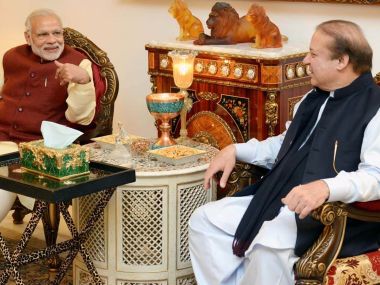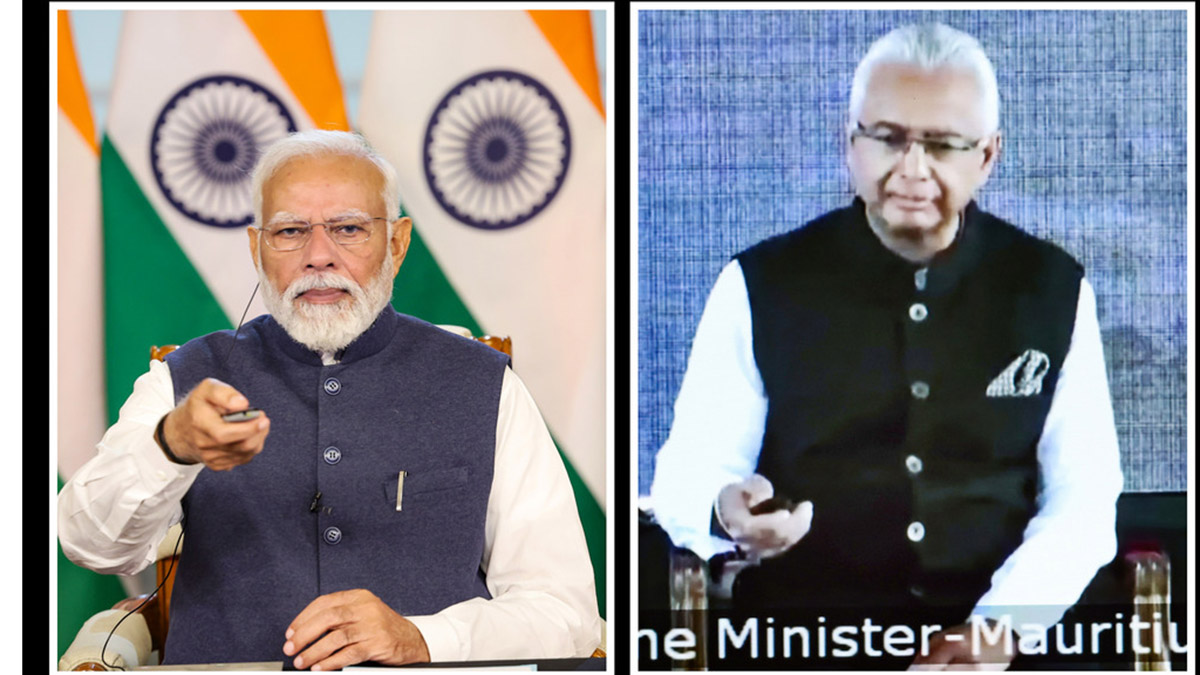“ Jung bahut karli. Jung karke kya paya, na zameen mili na jannat paya (What has war yielded? Neither land nor heaven).”
These words spoken firmly in the ear of Pakistani prime minister Nawaz Sharif and his brother Shahbaz at the Raiwind Palace — albeit not in quite as sophisticated and chaste Urdu — by Prime Minister Narendra Modi in Lahore exactly 11 months ago must be resonating rather loudly now.
The Sharif brothers seem to have mistaken Modi’s utterances as a sign of his love for Urdu shaayari. In his book The Pakistan Paradox by Christophe Jafferlot, the French scholar on South Asia aptly writes: “The idea of Pakistan (is) riddled with tensions. Initiated by a small group of select Urdu-speaking Muslims who envisioned a unified Islamic state, today Pakistan suffers the divisive forces of various separatist movements and religious fundamentalism”.
Perhaps attuned to dealing with Indian politicians prone to display their love for shaayari more than realpolitik, there is nothing amiss if the Pakistan establishment regarded Modi’s utterances as the usual platitudes. But those who know Modi could vouch for the fact that the prime minister is not known for lowering his guard and talking inanities to please someone.
Take for instance, the following: His silence after the India’s surgical strikes inside Pakistan is indicative of his focused approach to the task at hand. Those who met him or spoke to him over the past three days admit that Modi did not let anyone know about his steely resolve to carry out the operations. Not even once did he lend credence to the notion of warmongering. His speeches at Kozhikode were measured and calculated to address the domestic and international audience. In his public meeting, he talked about fighting a “thousand-year war with Pakistan” to end poverty, illiteracy and infant-mortality. In his BJP’s national council, he was particularly emphatic on his party’s attempt to co-opt Muslims as “our own”.
The astute politician that he is, Modi is acutely conscious of the fact that the war hysteria in India must be contained to check the divisiveness on Hindu-Muslim fault line. That is the precise reason that he selectively used his silence and eloquence, both, as strategic assets. And this is not the first time Modi did it. There is a discernible pattern.
Recall 26 July, 2008 when Ahmedabad witnessed multiple bomb blasts triggered by Indian Mujahideen group that claimed the lives of 60-odd people. Modi, as a chief minister, was requested by the then police commissioner to not visit the site. He not only ignored the police officials’ advise but also visited the hospitals where injured were brought in the midst of reports of successive blasts. He looked supremely calm and avoided rhetoric. However, in a secret operation conducted with the help of the Intelligence Bureau (IB), his police teams conducted raids across the country and nabbed all culprits. The operation’s secrecy was blown away when the UP government headed by Mayawati prevented the Gujarat Police from carting away a terrorist arrested from Azamgarh in a secret raid.
Modi’s discreet behaviour is deeply internalised in his political personae. Those closely watching his behaviour would see discernible pattern. For example he dissuaded the Ministry of External Affairs after the Pathankot attack to go all out against Pakistan. The MEA’s reaction after the Pathankot attacks was quite restraint and avoided mentioning Pakistan to give the Pakistani establishment space to manoeuvre. Despite stiff resistance by the Indian agencies and the home ministry, a team of Pakistani investigators was allowed to conduct the probe in Pathankot airbase. However this magnanimity was taken by the Pakistani establishment as consistent with the old Indian approach.
In sharp contrast to the Pathankot attacks, the government adopted a silent approach after the attack on the Uri brigade headquarters of the army. Apart from Modi’s tweet assuring people to get even with perpetrators of the attack, Modi avoided war rhetoric. The investigative agency too did not bother to seek any help from the Pakistani establishment. Right from the word go, there was no ambiguity in the prime minister’s mind that it was military action by Pakistan camouflaged as terrorism.
Those who know Modi could vouch for the fact that the prime minister is not known for lowering his guard and talking inanities to please someone
Although Modi let other colleagues like Rajnath Singh, Sushma Swaraj manage the domestic and external fronts respectively, he was totally immersed in operational details of India’s response. He did factor in the inherent instability of Pakistan, its own fault-lines and the jihadist mindset of a section of its army while fashioning India’s response. And he started making preparations for such an eventuality after the Uri attack. In fact, his soft message delivered on 25 December, 2015 at Raiwind Palace was an abstract for the text he has been preparing for Pakistan.
Unfortunately, the Sharif household and Pakistani establishment failed to understand its meaning.


)




)
)
)
)
)
)
)
)